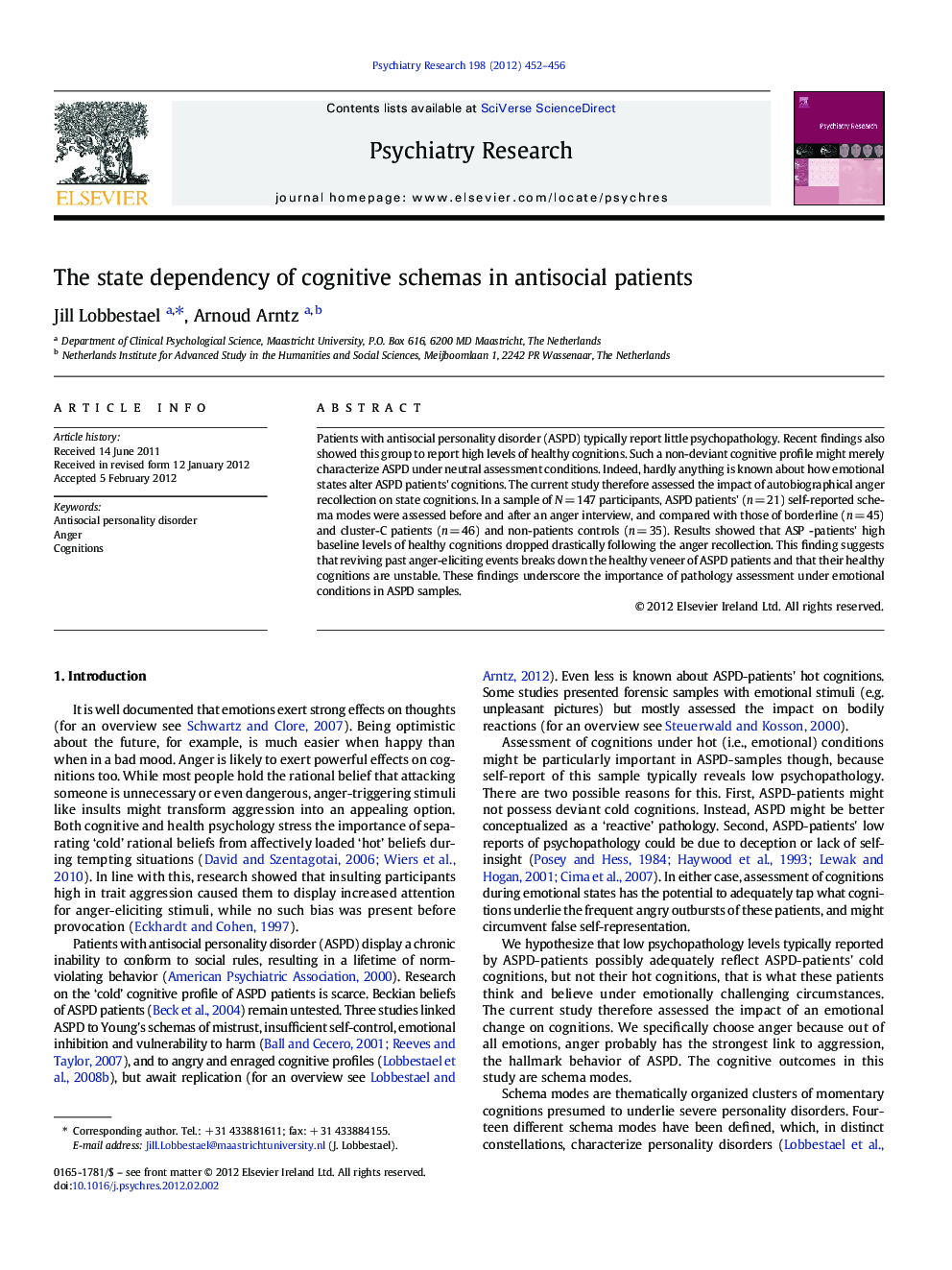| Article ID | Journal | Published Year | Pages | File Type |
|---|---|---|---|---|
| 10303962 | Psychiatry Research | 2012 | 5 Pages |
Abstract
Patients with antisocial personality disorder (ASPD) typically report little psychopathology. Recent findings also showed this group to report high levels of healthy cognitions. Such a non-deviant cognitive profile might merely characterize ASPD under neutral assessment conditions. Indeed, hardly anything is known about how emotional states alter ASPD patients' cognitions. The current study therefore assessed the impact of autobiographical anger recollection on state cognitions. In a sample of N = 147 participants, ASPD patients' (n = 21) self-reported schema modes were assessed before and after an anger interview, and compared with those of borderline (n = 45) and cluster-C patients (n = 46) and non-patients controls (n = 35). Results showed that ASP -patients' high baseline levels of healthy cognitions dropped drastically following the anger recollection. This finding suggests that reviving past anger-eliciting events breaks down the healthy veneer of ASPD patients and that their healthy cognitions are unstable. These findings underscore the importance of pathology assessment under emotional conditions in ASPD samples.
Related Topics
Life Sciences
Neuroscience
Biological Psychiatry
Authors
Jill Lobbestael, Arnoud Arntz,
